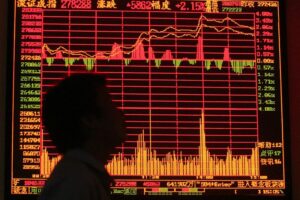
Grilled-cheese guilt ranks up there with red-meat regret.
That’s according to findings from scientists at the Johns Hopkins University Bloomberg School of Public Health, who found that diets in which meat, fish or dairy products were consumed only once a day have a smaller negative impact on emissions and water supplies than exclusively vegetarian diets, including milk and eggs, in 95% of countries analyzed.
The reasoning is tied to the stress on the Earth from raising dairy cows for milk, butter and cheese.
Dairy herds require large amounts of greenhouse-emitting energy and take up a lot of land, while the use of fertilizers and pesticides to grow feed is also a factor. Of course, vegetarians skip meat for a variety of reasons, from animal rights to cardiovascular health, and, yes, sustainability.
Another key finding of the study showed that a diet including animal protein predominantly from low-food-chain animals, such as small fish and mollusks, had nearly as low of an environmental impact as a vegan diet. Vegans avoid all animal products, favoring vegetables, grains, nuts and legumes.
Researchers also determined that a diet that involved reducing animal food consumption by two-thirds — termed by study authors as “two-thirds vegan” — generally had a lower climate and water footprint than the more traditional lacto-ovo vegetarian diet.
The study’s main objective was addressing hunger, and it found that to reduce nutritional crises, many poorer countries may have to increase their carbon footprint to feed their populations, keeping the responsibility for shrinking the overall carbon impact from food with the wealthier nations. Rich nations worried about the environmental impact then might opt to eat less meat overall and include more non-meat options in varied diets.
“Our data indicate that it is actually dairy-product consumption that explains much of the differences in greenhouse gas footprints across diets. Yet, at the same time, nutritionists recognize the important role dairy products have” in helping address food-shortage risk, according to study co-author, Martin Bloem, director of the Johns Hopkins Center for a Livable Future and a professor of environmental health at the Bloomberg School.
“The study findings highlight the difficulty in prescribing broad dietary recommendations to meet the needs of individual countries,” added Bloem.
A food’s country of origin can have enormous consequences for climate, according to the study. For example, one pound of beef produced in Paraguay contributes nearly 17 times more greenhouse gases than one pound of beef produced in Denmark. Often, this disparity is due to deforestation resulting from grazing land. “Where you get your food from matters,” said senior author Keeve Nachman, director of the food production and public health program at the Johns Hopkins Center for a Livable Future and an assistant professor with the Bloomberg School’s department of environmental health and engineering.
“Trade patterns have an important influence on countries’ diet-related climate and fresh-water impacts,” he added.
On average, producing a serving of beef emits 316 times more greenhouse gases — including methane — than pulses (such as beans, lentils and peas), 115 times more than nuts and 40 times more than soy, the study showed.
Agriculture, forestry and other land use accounted for nearly a quarter of global man-made greenhouse gas emissions from 2007-2016, a factor that is also setting up a hunger crisis, the U.N. climate science panel said in a major report last month.
The U.S. food industry, including Tyson Foods Inc. TSN, +2.94% , is responding to changing tastes that favor less overall meat consumption. Tyson earlier this month said it has invested in plant-based shellfish company New Wave Foods. The announcement followed by only a few months the move by the Jimmy Dean and Hillshire Farm seller to offer new plant-based nuggets and “blended” burgers, which are made with a combination of meat and plants.
Tyson is trying to compete with newer rival, plant-based “meat” substitute Beyond Meat BYND, +0.84% . Beyond Meat earlier this year had the biggest initial public offering of shares of any company in more than a decade, raising at least $240 million at a valuation slightly shy of $1.5 billion.
Read: Why some restaurants are turning up their noses at Beyond Meat












